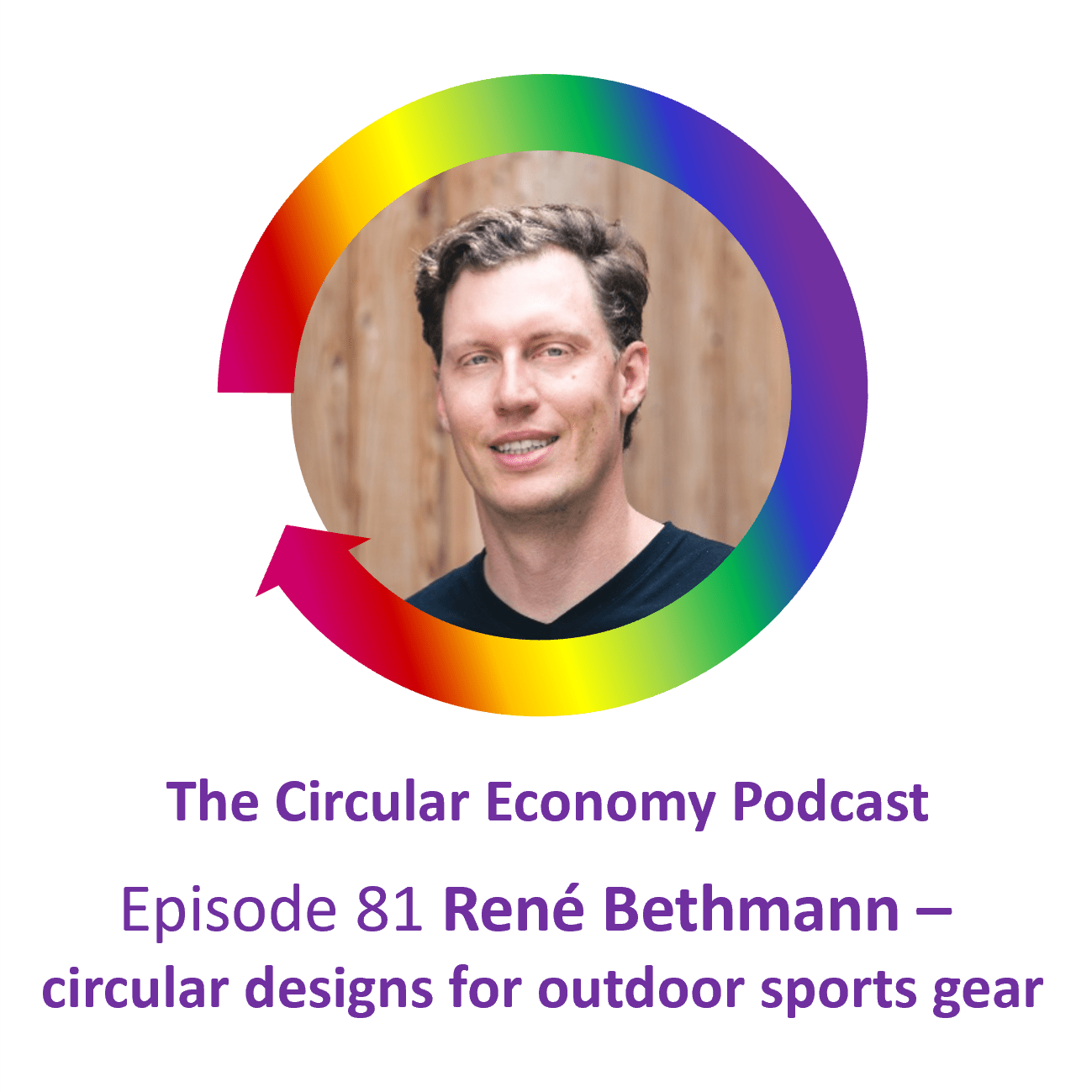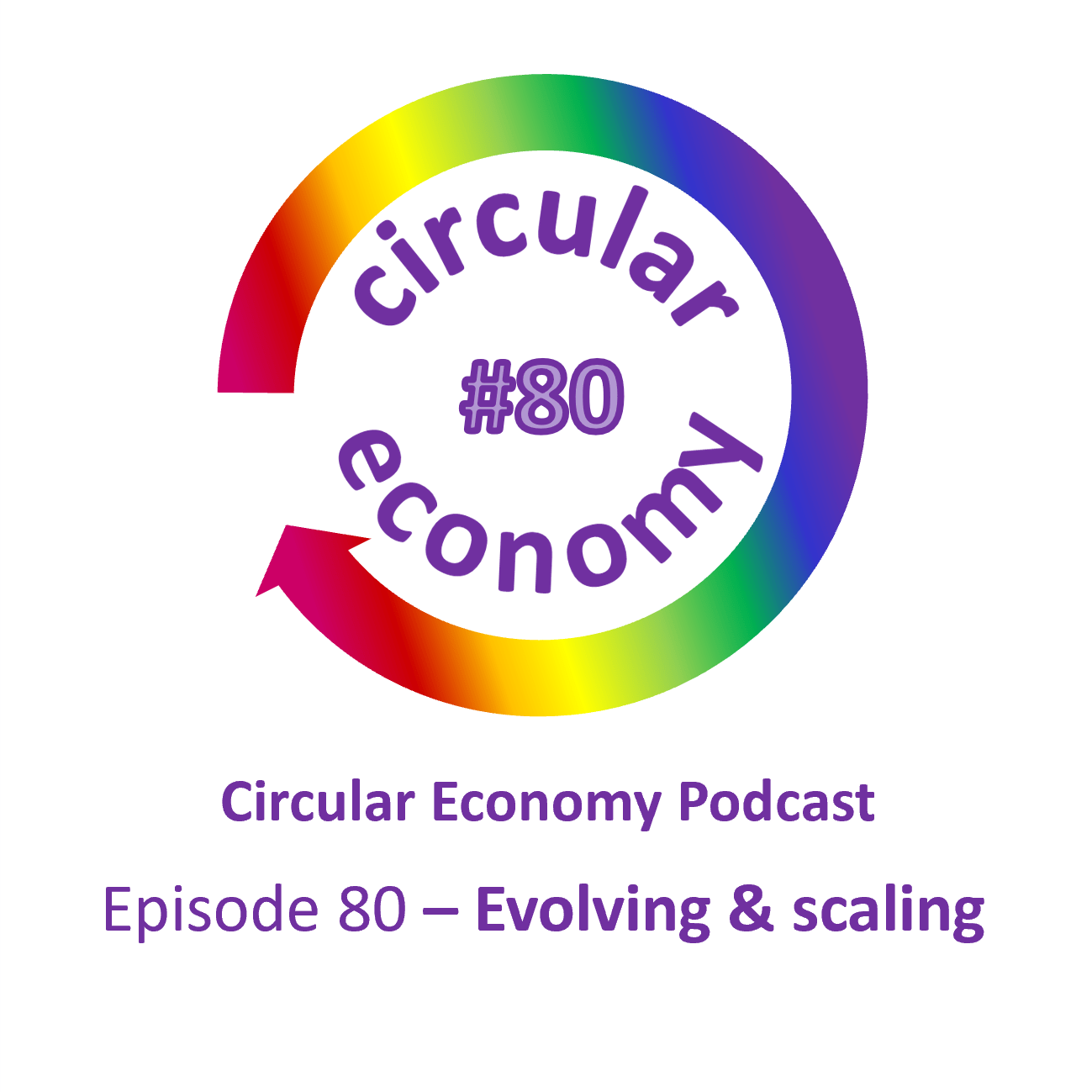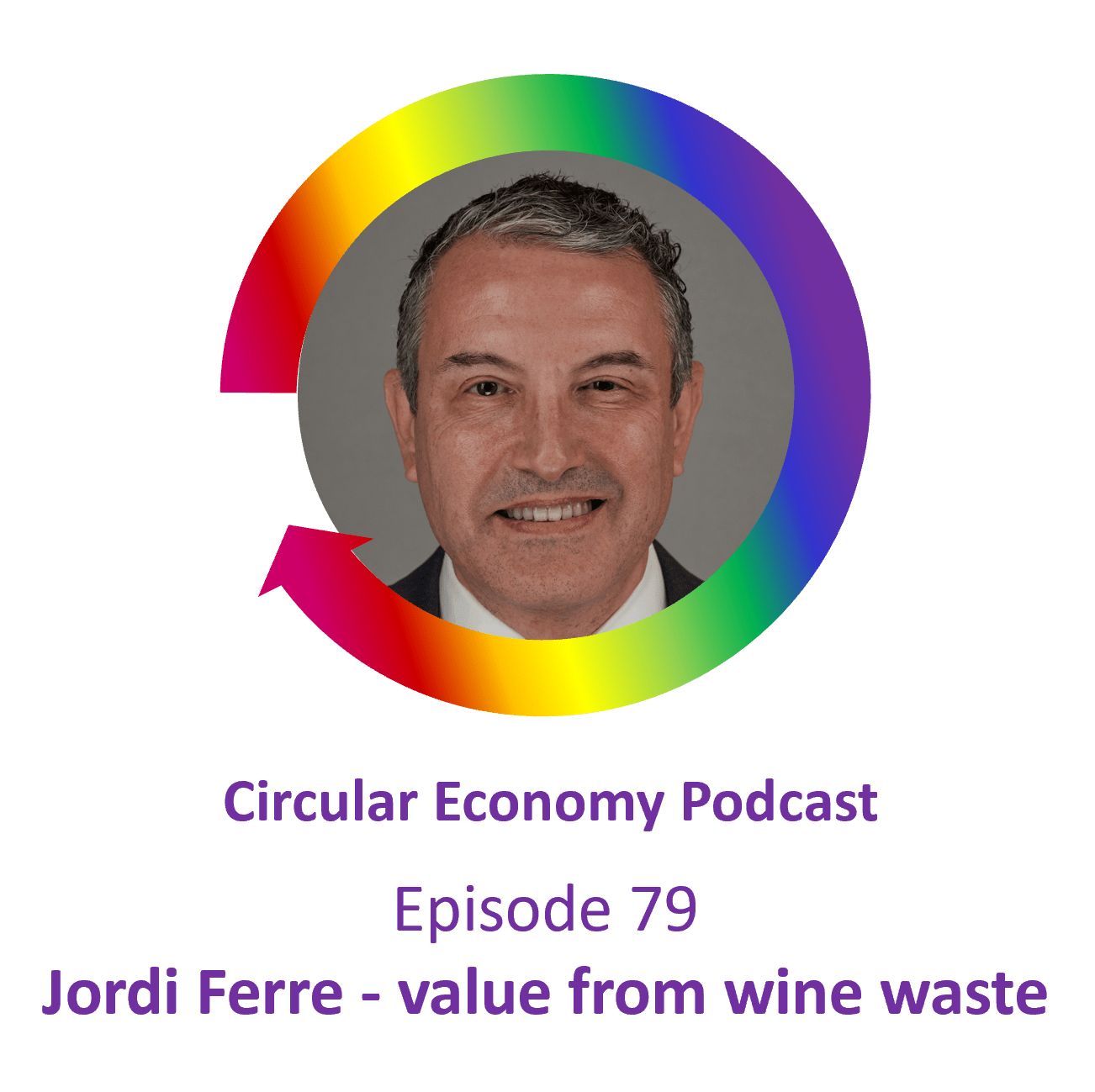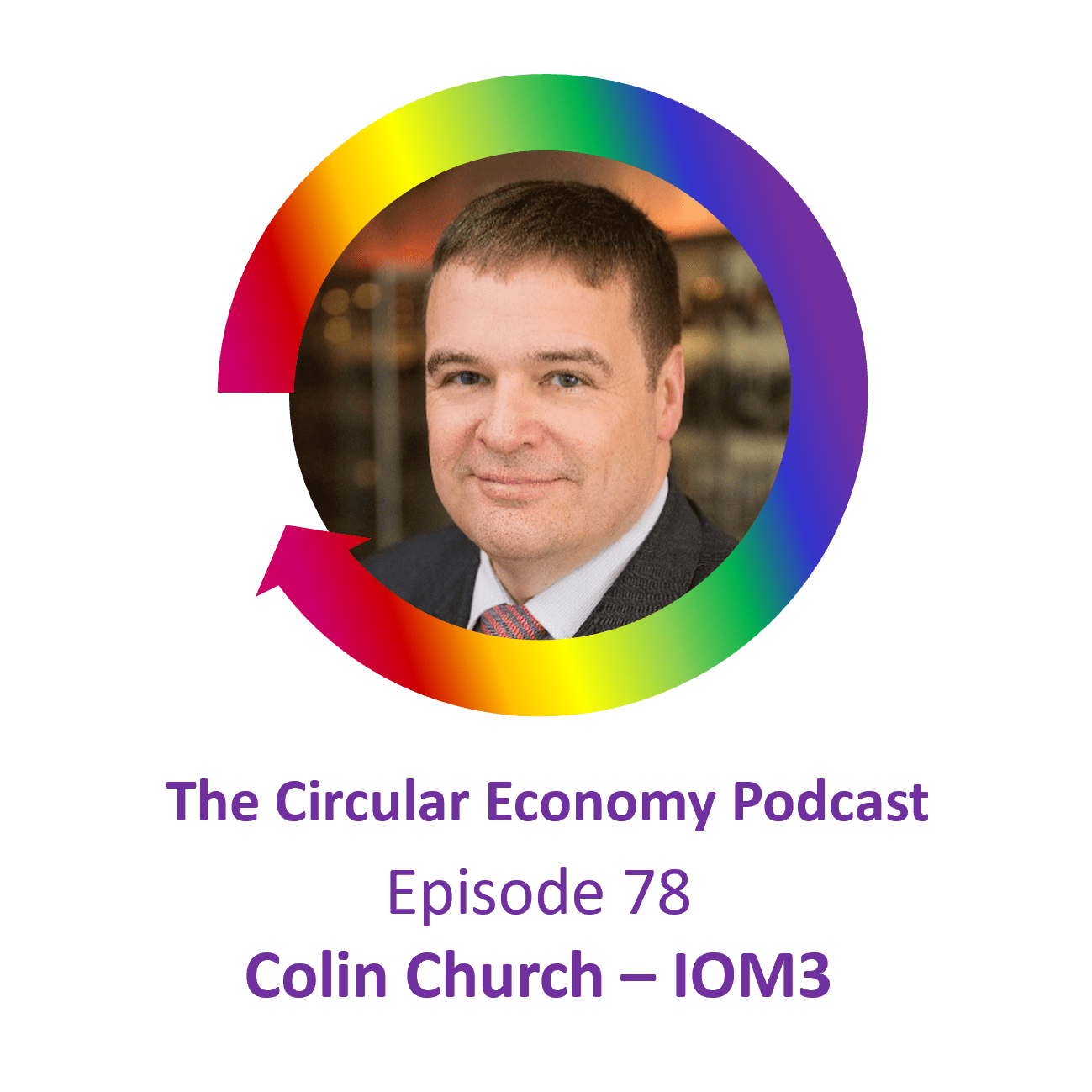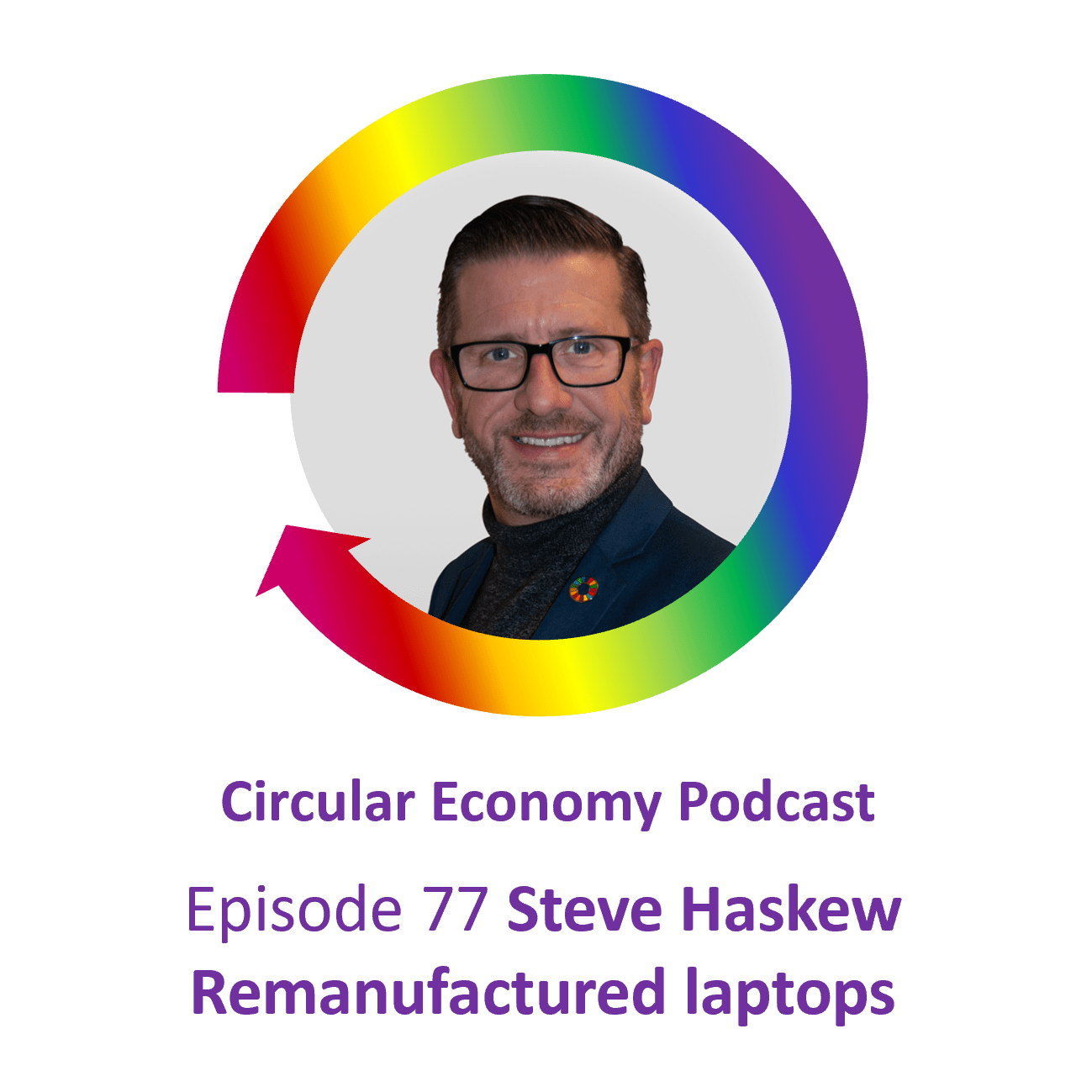Podcast: Play in new window | Download
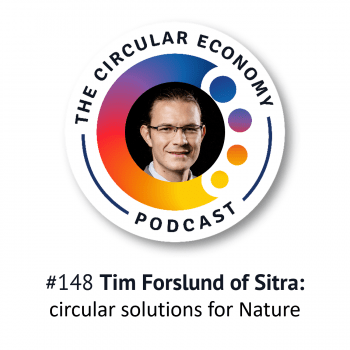
Tim Forslund works on the circular economy at the Finnish Innovation Fund Sitra. As a key part of his work at Sitra, Tim has analysed how circular economy strategies can help tackle biodiversity loss, including through the circular bioeconomy.
We’ll be talking about Sitra’s latest handbook for businesses, CIRCULAR SOLUTIONS FOR NATURE, which helps companies aiming to integrate circular business models into their operations so they can address biodiversity loss.
Sitra’s handbook includes a primer on the interconnections between circularity and nature, and sets out a three-step approach for action:
- identifying critical biodiversity impacts in the value chain;
- using circular solutions to tackle these impacts;
- designing the circular transformation journey.
Sitra is a public fund, think tank and future house. The circular economy has been a central part of Sitra’s work for more than 10 years. In 2016, it led the work for the world’s first national circular economy roadmap, and in 2017, it started the World Circular Economy Forum.
CIRCULAR SOLUTIONS FOR NATURE is the third of Sitra’s handbooks for business, following on from its publications on technology and the chemical industry
International speaker, author and strategic advisor, Catherine Weetman helps people discover why circular, regenerative and fair solutions are better for people, planet – and prosperity.
Catherine’s award-winning book: A Circular Economy Handbook: How to Build a More Resilient, Competitive and Sustainable Business includes lots of practical examples and tips on getting started.
Stay in touch for free insights and updates…
Read on for more on our guest and links to the people, organisations and other resources we mention.
Don’t forget, you can subscribe to the podcast series on iTunes, Google Podcasts, PlayerFM, Spotify, TuneIn, or search for “circular economy” in your favourite podcast app. Stay in touch to get free insights and updates, direct to your inbox…
You can also use our interactive, searchable podcast index to find episodes by sector, by region or by circular strategy. Plus, there is now a regular Circular Economy Podcast newsletter, so you get the latest episode show notes and links delivered to your inbox on Sunday morning, each fortnight. The newsletter includes a link to the episode page on our website, with an audio player. You can subscribe by clicking this link to update your preferences.
Links we mention in the episode:
Links for our guest:
- Tim Forslund on LinkedIn: https://www.linkedin.com/in/tim-forslund-7701b3136/
- Sitra on LinkedIn: https://www.linkedin.com/company/sitra/posts/?feedView=all
- WCEF’s LinkedIn: https://www.linkedin.com/company/world-circular-economy-forum/posts/?feedView=all
- Sitra’s Circular solutions for Nature – handbook and case list: https://www.sitra.fi/en/projects/circular-solutions-for-nature/
Books, people and organisations we mentioned
- Axfoundation https://www.axfoundation.se
- The Lifestyle test: https://www.sitra.fi/en/projects/lifestyle-test-2/
Catherine’s work:
- Circular Economy Podcast on LinkedIn: linkedin.com/showcase/circular-economy-podcast/
- Circular Economy Podcast website: circulareconomypodcast.com
- Catherine Weetman on LinkedIn: https://www.linkedin.com/in/catherine-weetman-9419107/
- A Circular Economy Handbook: How to Build a More Resilient, Competitive and Sustainable Business – buy from any good bookseller, or direct from the publisher Kogan Page, which ships worldwide (free shipping to UK and US) https://www.koganpage.com/CircEcon2
- Interactive podcast index https://www.rethinkglobal.info/circular-economy-podcast-index/
- Rethink Global www.rethinkglobal.info
- Sign up to get the podcast player and shownotes for each new episode emailed to your inbox
Guest bio
Tim Forslund works with circular economy at the Finnish Innovation Fund Sitra. As a key part of his work at Sitra, Tim has analysed how circular economy strategies can help tackle biodiversity loss, not least through the circular bioeconomy. Tim now spends most of his time within the Policy Lab of the EU Circular Economy Resource Centre, which has been set up to facilitate exchange with and support EU Partner Countries in the Global South with their circular economy work.
The Finnish Innovation Fund Sitra is a public fund, think tank and future house. Its role is to anticipate the future, drive change and accelerate solutions to major challenges in our society in collaboration with other actors. The circular economy has been a central part of Sitra’s work for more than 10 years. In 2016, Sitra led the work with the world’s first national circular economy roadmap, and in 2017, it started the World Circular Economy Forum.
Playlist: getting started with the circular economy…
Want to know more about the what the circular economy really is, and how it can help your business? Here’s a playlist to help you get to grips with the concept, how it creates value, and the common myths (spoiler alert – it’s much more than recycling!)
- #1 What is the circular economy: A quick intro to explain what the circular economy is and why it’s important. We explore how it helps create better products and services, and at the same time helps to make a better world. I break it down into my 5 circular economy components, helping you think about each part of your business.
- #2 The linear economy and your risk checklist: We dig a bit deeper into the way we do business now, the linear economy, and why that’s creating problems for business, society and our living planet. Also, we’ll look at the risks that emerge from those big-picture issues, and how they might affect your organisation.
- #90 Does circular mean it’s sustainable? Catherine Weetman is worried that companies are using circular economy solutions to grow their business (and their footprints).
- #101 Circular is better for people, planet and profit! How three simple strategies can help you get started with circular and regenerative solutions that are better for people, planet and profit.
- #120 Priorities are changing: people find life is better when we care for and share things – circular economy strategies make that better for business, too.
And here’s Catherine’s guide: What is the circular economy?
Want to dig deeper?
Why not buy Catherine’s award-winning book, A Circular Economy Handbook: How to Build a More Resilient, Competitive and Sustainable Business. This comprehensive guide uses a bottom-up, practical approach, and includes hundreds of real examples from around the world, to help you really ‘get’ the circular economy. Even better, you’ll be inspired with ideas to make your own business more competitive, resilient and sustainable.
Please let us know what you think of the podcast – and we’d love it if you could leave us a review on iTunes, or wherever you find your podcasts. Or send us an email…
Please let us know what you think of the podcast – and we’d love it if you could leave us a review on iTunes, or wherever you find your podcasts. Or send us an email…
Podcast music
Thanks to Belinda O’Hooley and Heidi Tidow, otherwise known as the brilliant, inventive and generous folk duo, O’Hooley & Tidow for allowing me to use the instrumentals from the live version of Summat’s Brewin’ as music for the podcast. You can find the whole track (inspired by the Copper Family song “Oh Good Ale”) on their album, also called Summat’s Brewin’. Or, follow them on Twitter.
